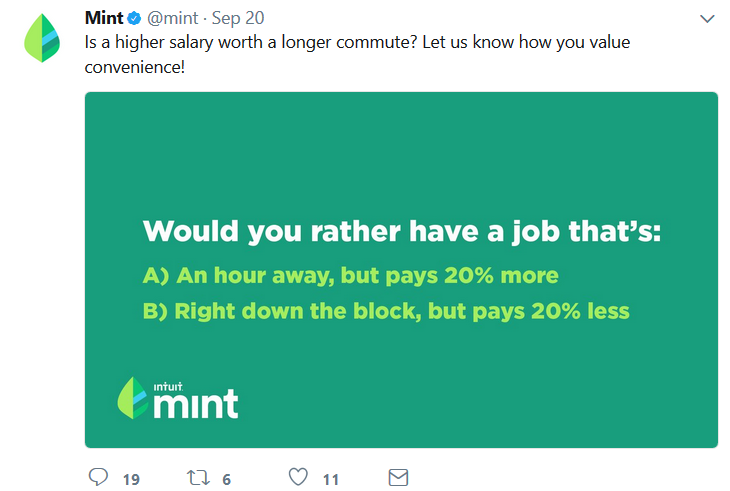With a fledgling startup to manage, you likely don’t have a huge pool of resources to tap into for your marketing. This includes budget, manpower and the most valuable and limited resource of all: time. But, you can start your journey towards content marketing brilliance and the business growth it can bring, with:
-
- An understanding for what you hope to achieve.
- A solid plan ( i.e., content marketing doesn’t mean posting random blog posts and tweets when you have time).
- The commitment to follow through and the secret ingredient of successful content marketing for entrepreneurs – refinement. Measure your campaigns, improve what works and let go of what doesn’t.
You don’t need a full-staffed marketing team or million dollar marketing budget. You just need to take the first steps. And, when you get it right, you are that much more likely to see your startup transform into an established small to mid-sized business (or international brand) that your customers count on. Not just for great products or services, but also for industry information, relevant tips and insights, and a sense of belonging as you use your content strategy to build a three-dimensional brand community.
The Vision
First, you need to have an idea of your end result. It may take some learning and trial and error to get there, but as a startup, you already know how powerful this fluid, ever-evolving approach is for getting results. Here’s a glimpse of the ideal you’ll have with your content:
- If you’re a startup, start blogging immediately. Include in-depth blog posts, podcasts, and vlogs.
- Email newsletters offering varied customer delights – promotions, eBooks, news, links to video content, registration to events
- Brand social media pages that act as a platform for customer service, customer relationship building and for thoughtful posts that generate demand
- Regular events such as webinars, in-person seminars, conferences and more – marketing events are particularly valuable for B2B startups
- An elegantly designed website with well-structured landing pages and clear navigation to seamlessly entice and convert the site visitors you worked so hard to attract into leads, and leads into customers
And, here’s the inspiration to show you what happens when you work towards making your vision a reality.
Blue Apron grew 500 percent in 2015. This forward-thinking sustainable food box delivery company attributes a chunk of their mega success to their content marketing.

Blue Apron serves up tasty customer delights with regular recipes and healthy menu ideas, tons of educational content in enjoyable formats, fantastic food photography, and enticing lead capture forms on their website. They also don’t follow a content playbook but rather use creativity, delivering fresh, out-of-the-box content that perfectly tailors to their market.
Mint is another startup superstar. Today everyone is familiar with this personal finance brand. The company officially launched in 2007. Two years and 1.5 million customers later, it sold for $170 million to Intuit. When founder Aaron Patzer came up with the idea for Mint, he took the marketing aspect very seriously right from the start. Patzer would walk up to random people at a train station and ask which of his tagline ideas resonated the most with them. Talk about affordable market research.

Today, Mint is not only established as the top personal finance app, it’s also endlessly helpful to consumers with the Mint Life blog and masterful social media posts that appeal to a large audience. A decade after launch, this once startup, now turned juggernaut, boasts over 20 million users.
The Plan
If you don’t already have a well-documented plan, you’re not alone. Only 37 percent of B2B marketers and 40 percent of B2C marketers have one that is written out. However, just because other companies fall short when it comes to creating a plan, that doesn’t mean you should leave your content marketing strategy to the wind. Which isn’t actually a strategy at all.
The trick to creating an effective strategy is to stop doing and start strategizing. Drop the pen, stop typing. Put down the camera and save your graphic design file. It’s time to map out your content marketing strategy.
Under the assumption you have a modest startup budget, here are the guidelines that will help you get your content marketing gears spinning.
Plan everything way in advance. Smart content creators have their blog posts and keywords mapped out weeks ahead of time. This will help ensure you have consistent content, even on days when you have zero time to work on your startup’s marketing (let alone to think!). It will also give you peace of mind.
Make your content topics cohesive. From written blogs to webinars and video posts, each piece of content needs to fit into the whole. Always ask yourself, how does this post or infographic support the content that surrounds it within the jigsaw of your strategy? As an example, your social posts should promote website content. When you interview an industry expert for your podcast, ask your interviewee to write a guest blog post. Your how-to videos should answer the questions that were brought up at your last webinar or from your last customer survey.
Use free tools to better strategize. Subscriptions to digital marketing tools will make a world of difference in your marketing, helping you save time, better personalize your content, and making your data analysis more in-depth and less time-consuming. But, you don’t need to start out paying for Buzzsumo, Hubspot and Lead Pages. That can come later. What you can do now is use the free tools that are available. There are dozens of them, many of which are incredibly useful. From keyword research (Google Keyword Planner, AnswerthePublic) to website management and analysis (WordPress, Google Analytics), to social media management (Buffer).
Measure. Measuring the success of your content should be a part of your strategy, not an afterthought. Especially as a startup, careful consideration of the response and effect of your content will allow you to quickly refine your strategy until it does make a serious impact. If you aren’t tracking your content, you could be wasting time and money.
For example – how much does website traffic change after you change the tone of your tweets and Facebook posts? What happens to your email click through rates when you post a link to a video, better personalize your closing or simply shorten (or lengthen) the text? Did your email contact list grow after you published an eye-catching infographic?
The more questions you ask of your content, the more answers you’ll get.
The Execution
You don’t need hundreds of thousands of dollars or a dynamic team to get your content marketing right. In fact, you’ll find you can create a powerful strategy on a shoestring budget. Just like when you started out as an entrepreneur, you just need a vision, a plan, and a willingness to try out your strategy, learn from it, and keep improving. Then, of course, as your startup grows, your marketing budget can grow as well.




